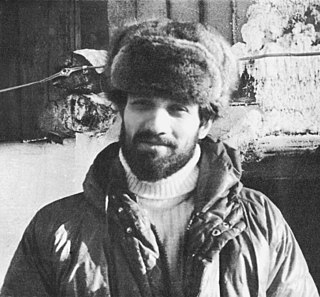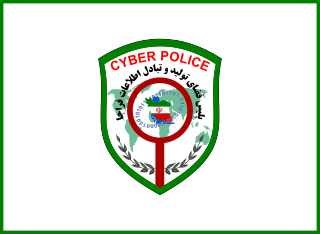
Reporters Without Borders is an international non-profit and non-governmental organization with the stated aim of safeguarding the right to freedom of information. It describes its advocacy as founded on the belief that everyone requires access to the news and information, in line with Article 19 of the Universal Declaration of Human Rights that recognizes the right to receive and share information regardless of frontiers, along with other international rights charters. RSF has consultative status at the United Nations, UNESCO, the Council of Europe, and the International Organisation of the Francophonie.

Human rights in Russia have routinely been criticized by international organizations and independent domestic media outlets. Some of the most commonly cited violations include deaths in custody, the widespread and systematic use of torture by security forces and prison guards, hazing rituals in the Russian Army, widespread violations of children's rights, violence and discrimination against ethnic minorities, and the killing of journalists.
Huang Qi is a Chinese webmaster and human rights activist. He is the co-founder of Tianwang Center for Missing Persons, along with his wife Zeng Li. Initially the mission of the organization was to help counter human trafficking that had become a swelling problem in the late 1990s, but later it was expanded to include campaign against human rights abuse. Huang is also the owner and webmaster of 64tianwang.com, a website originally intended to release news about people who had disappeared in the People's Republic of China.

The Cuban dissident movement is a political movement in Cuba whose aim is to replace the current government with a liberal democracy. According to Human Rights Watch, the Cuban government represses nearly all forms of political dissent.
Political repression of cyber-dissidents is the oppression or persecution of people for expressing their political views on the Internet.
Russian web brigades are state-sponsored anonymous Internet political commentators and trolls linked to the Government of Russia. Participants report that they are organized into teams and groups of commentators that participate in Russian and international political blogs and Internet forums using sockpuppets, social bots and large-scale orchestrated trolling and disinformation campaigns to promote pro-Putin and pro-Russian propaganda. Articles on the Russian Wikipedia concerning the MH17 crash and the Russo-Ukrainian War were targeted by Russian internet propaganda outlets. In June 2019 a group of 12 editors introducing coordinated pro-government and anti-opposition bias was blocked on the Russian-language Wikipedia. During the war by Russia against Ukraine in 2022, Kremlin trolls were still active on many social platforms and were spreading disinformation related to the war events.

Media freedom in Russia concerns both the ability of directors of mass-media outlets to carry out independent policies and the ability of journalists to access sources of information and to work without outside pressure. Media of Russia include television and radio channels, periodicals, and Internet media, which according to the laws of the Russian Federation may be either state or private property.

Alexander Pinkhosovich Podrabinek is a Soviet dissident, journalist and commentator. During the Soviet period he was a human rights activist, being exiled, then imprisoned in a corrective-labour colony, for publication of his book Punitive Medicine in Russian and in English.
Internet censorship in Vietnam prevents access to websites critical of the Vietnamese government, expatriate political parties, and international human rights organizations, among others or anything the Vietnamese government does not agree with. Online police reportedly monitor Internet cafes and cyber dissidents have been imprisoned. Vietnam regulates its citizens' Internet access using both legal and technical means. The government's efforts to regulate, monitor, and provide oversight regarding Internet use has been referred to as a "Bamboo Firewall". However, citizens can usually view, comment and express their opinions civilly on the internet, as long as it does not evoke anti-government movement, political coup and disrupt the social stability of the country.

World Day Against Cyber Censorship is an online event held each year on March 12 to draw attention to the ways that governments around the world are deterring and censoring free speech online. The day was first observed on 12 March 2008 at the request of Reporters Without Borders and Amnesty International. A letter written by Jean-François Julliard, Secretary-General of Reporters Without Borders, and Larry Cox, Executive Director of Amnesty International, was sent to the Chief Executive Officers of Google, Yahoo!, Inc., and Microsoft Corporation to request observation of the day. The annual event is symbolized by a logo created by Reporters Without Borders consisting of a computer mouse breaking free from a chain.
CyberDissidents.org is a division of Advancing Human Rights, a 501 (c) (3) non-profit organization. CyberDissidents.org focuses on the human rights of online political activists. The group believes that highlighting the plight of individual democratic dissidents in the West affords a measure of protection against government oppression.

Nawaat is an independent collective blog co-founded by Tunisians Sami Ben Gharbia, Sufian Guerfali and Riadh Guerfali in 2004, with Malek Khadraoui joining the organization in 2006. The goal of Nawaat's founders was to provide a public platform for Tunisian dissident voices and debates. Nawaat aggregates articles, visual media, and other data from a variety of sources to provide a forum for citizen journalists to express their opinions on current events. The site does not receive any donations from political parties. During the events leading to the Tunisian Revolution of 2011, Nawaat advised Internet users in Tunisia and other Arab nations about the dangers of being identified online and offered advice about circumventing censorship. Nawaat is an Arabic word meaning core. Nawaat has received numerous awards from international media organizations in the wake of the Arab Spring wave of revolutions throughout the Middle East and North Africa.
An anonymous blog is a blog without any acknowledged author or contributor. Anonymous bloggers may achieve anonymity through the simple use of a pseudonym, or through more sophisticated techniques such as layered encryption routing, manipulation of post dates, or posting only from publicly accessible computers. Motivations for posting anonymously include a desire for privacy or fear of retribution by an employer, a government, or another group.
Phạm Hồng Sơn is a Vietnamese dissident. In 2003, he was sentenced to a 5 years imprisonment for political dissent against the government of Vietnam.

Internet censorship in the Russian Federation is enforced on the basis of several laws and through several mechanisms. Since 2012, Russia maintains a centralized internet blacklist maintained by the Federal Service for Supervision of Communications, Information Technology and Mass Media (Roskomnadzor).

The Iranian Cyber Police is a unit of the Islamic Republic of Iran Police, founded in January 2011. In December 2012, the head of Tehran's cyber police unit was dismissed in relation to the death of Iranian blogger Sattar Beheshti, who was being held in the cyber police's custody.

Party of crooks and thieves is an expression widely circulating among opposition in Russia which is used to refer to the ruling United Russia party, led by Dmitry Medvedev and Vladimir Putin. It was coined by blogger and anti-corruption activist Alexei Navalny in February 2011.
Irreligion in Bangladesh is rare and uncommon publicly. A Gallup survey from 2014 - 2015 found that approximately less than 1% of Bangladeshis identified as convinced atheists as all the respondents reported as having or believing in a religion. Bangladesh has 166.3 million people as of 2021 estimation.

Anton Borisovich Nossik was a Russian journalist, social activist and blogger. Sometimes he is called one of the godfathers of the Russian Internet or the first Russian-language blogger. He was an editor for the Russian online news publications Vesti.ru, Lenta.ru, Gazeta.ru and NEWSru.com.
Press freedom is an ongoing issue in Cuba. The country has ranked low on the Press Freedom Index, a list published by Reporters Without Borders which reflects the degree of freedom that journalists, news organisations, and netizens have in a country. Cuba has been ranked among the index's “least free" countries for a decade. In 2016, Amnesty International reported that the re-establishment of diplomatic relations between the United States and Cuba in December 2014 "renewed hope for an end to the US economic embargo, which has had a direct impact on the human rights of ordinary Cubans."









